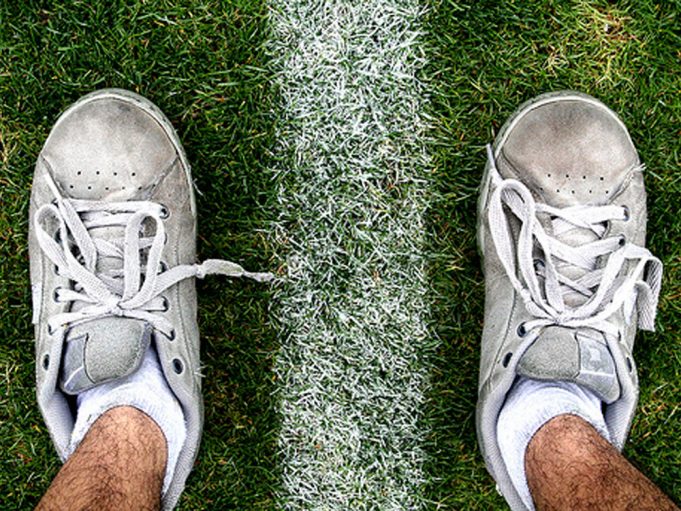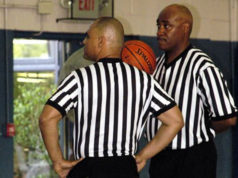What’s the protocol when a fan throws something on the court or field? How do you react on a personal level, and what should you do in your role as an official in charge of the game?
You may have never seen a fan throw debris at one of your games. But it happens. When it does, you must be prepared.
Many years ago, I was officiating a rivalry high school basketball game in Montgomery County, Md. I didn’t know either coach, nor the playing environment, though I did know both teams were in Rockville, so there’d be some added intensity. The game seemed fine at first. Nothing odd had happened. There was no yipping, shoving or elbowing going on.
Running down the court, I heard a snapping sound as I crossed the halfcourt line. It was unidentifiable. Hmm. I kept running and thought nothing of it.
A short time later I felt something hit my shirt. What the heck? I still had no idea what it was. Then, one of the tiny objects hit my head and popped. I looked on the floor and saw it was one of those poppers you buy at a fireworks stand — the kind that are thrown at the ground and designed to explode.
Whoa! Time to immediately stop the game. That is not going to continue.
I went to the home team’s coach. Using a measured voice and speaking to him calmly but directly, I said, “Coach, I just got hit in the head with a popper. That has to stop right now. Please get on the PA and let the fans know that if one more item is thrown on the court, you will be assessed a technical foul.”
End of story. He grabbed the microphone and sent an impassioned message to the fans, letting them know they were hurting the home team by their actions and if it continued, they would be ejected from the gym. His plea stopped the antics, eliminating the safety issue for officials, players and coaches.
When a situation like that one arises in one of your games, are you ready? We talk about game management-related issues in pregame discussions and presume we’re ready for anything. Ironically, that was not true in that case. I doubt anyone officiating football, soccer, basketball or any other sports has discussed fans throwing explosives (or anything else, for that matter) onto the playing surface in their pregame. “Oh, Hank, don’t forget. If you get hit in the head with a piece of candy or something, we need to work with site management to make sure it doesn’t happen again.”
Nope. You act on instinct. That’s what I did. At the same time, I was prepared because of past generic discussions on what to do when you have unruly fans. You must get with game management quickly and put the onus on them handling the situation. It is not your role as the referee or umpire to go into the stands at a high school, middle school or college contest to single out someone who is causing a problem on the field.
Your responsibility is to take quick, decisive action and manage the situation as a professional, ensuring site management understands the onus is on them (with potential penalties) if the activity doesn’t cease. Then enforce the rules. If it happens again, call a technical foul on the basketball coach, penalize the football coach, restrict or eject the coach in baseball or softball. Your authority rests on taking appropriate enforcement actions.
When we put on our uniforms, we are not out to win popularity contests. We’re on the court and field to ensure the rules are equitably enforced. Sometimes that means making uncomfortable decisions. No one wants to have to go to a coach and tell him or her to get on the microphone to communicate with fans that they’re being jerks and compromising game safety.
But sometimes it has to be done. Measure your words. Be prepared. Get it done.
What's Your Call? Leave a Comment:
Note: This article is archival in nature. Rules, interpretations, mechanics, philosophies and other information may or may not be correct for the current year.
This article is the copyright of ©Referee Enterprises, Inc., and may not be republished in whole or in part online, in print or in any capacity without expressed written permission from Referee. The article is made available for educational use by individuals.
















